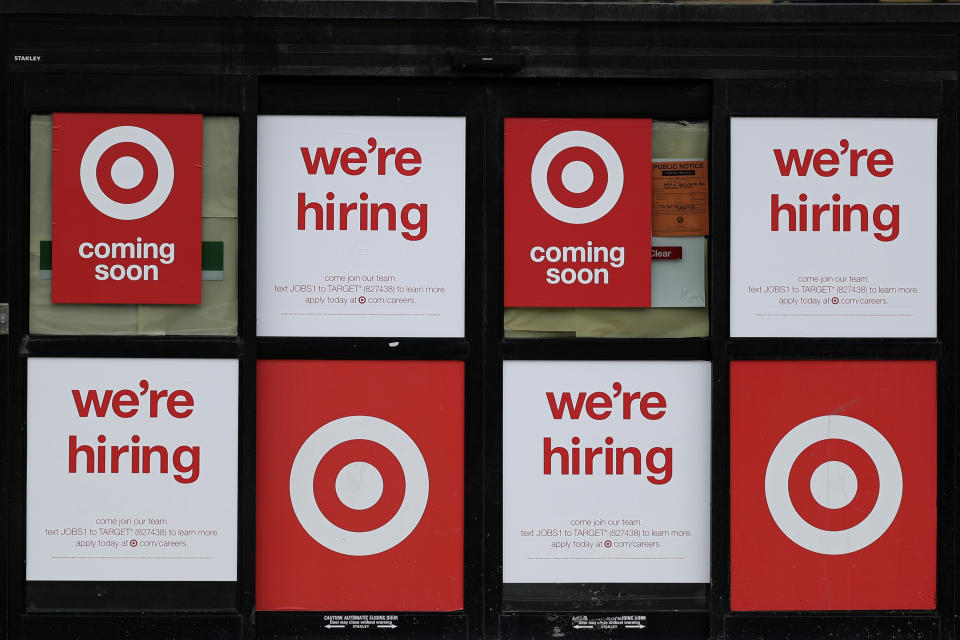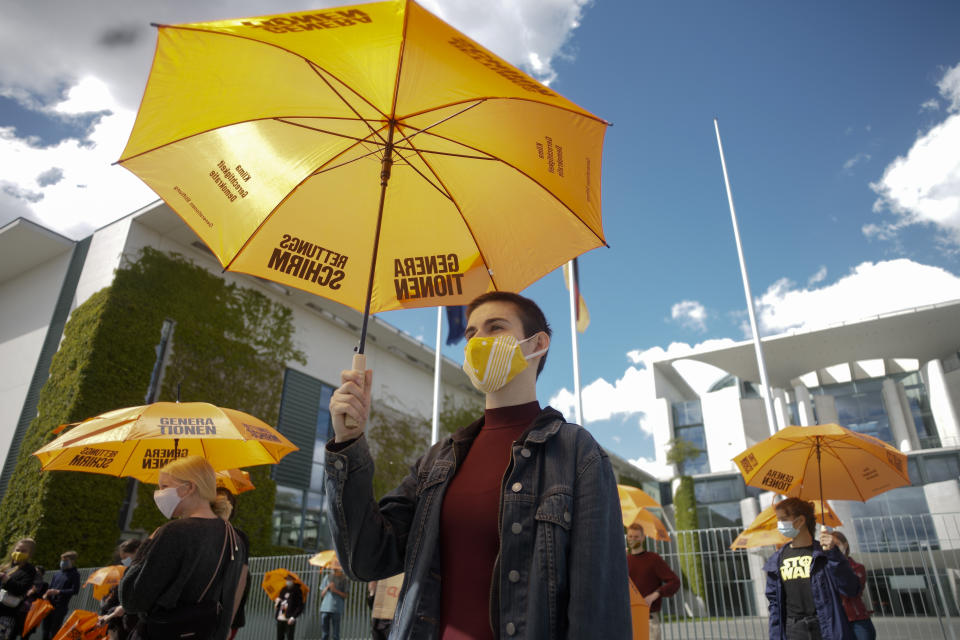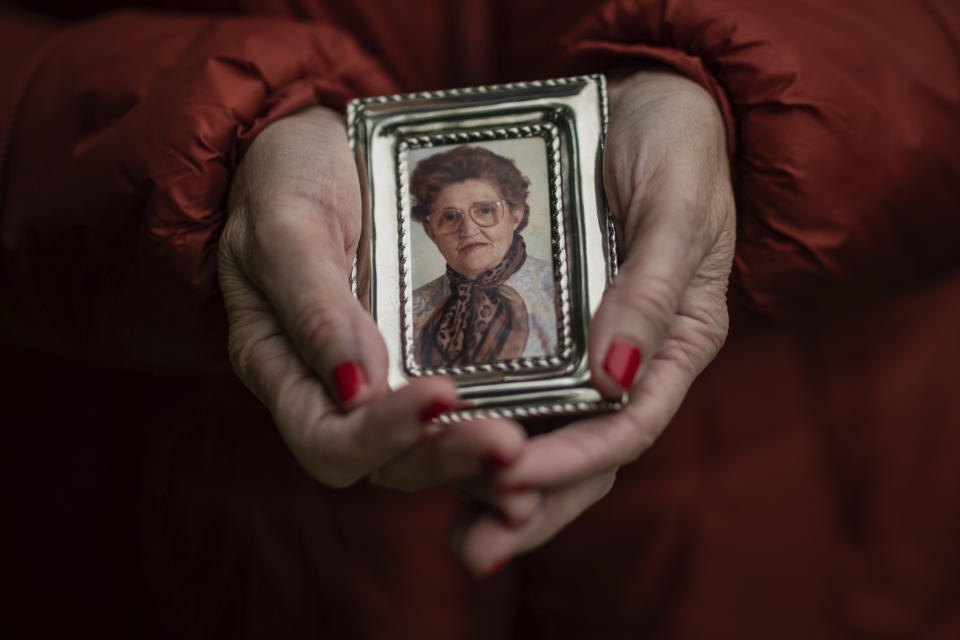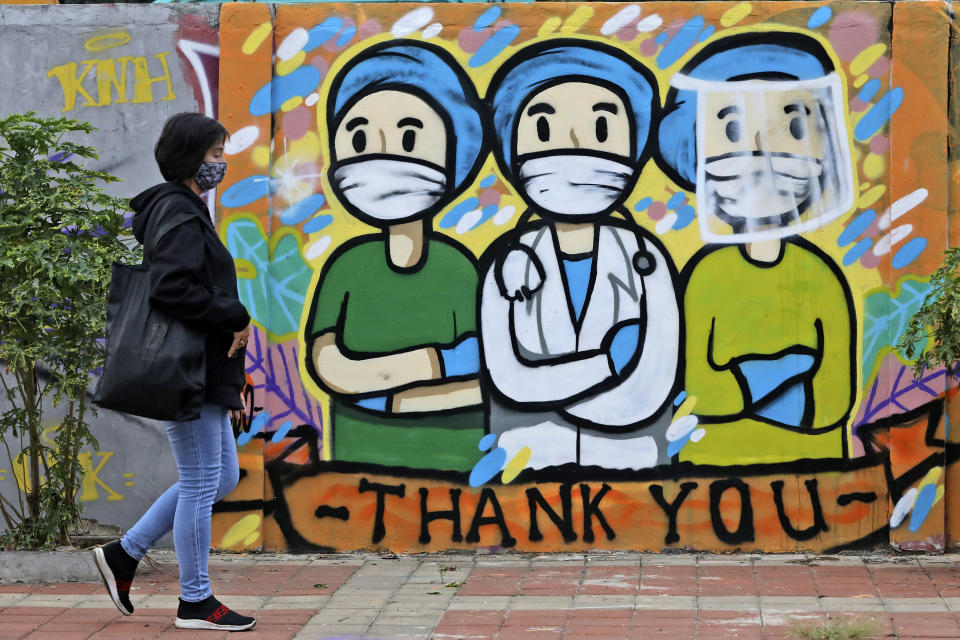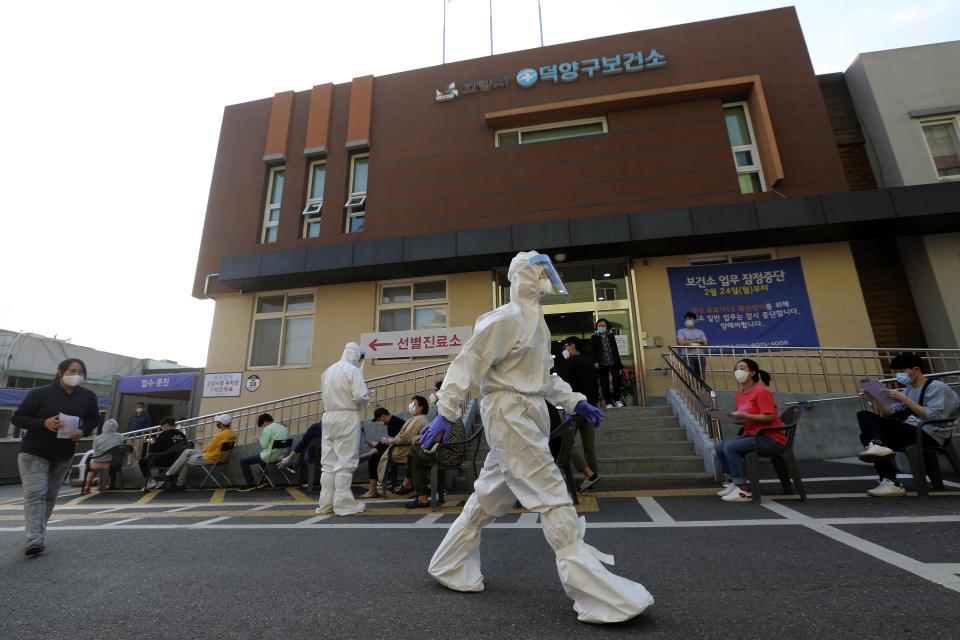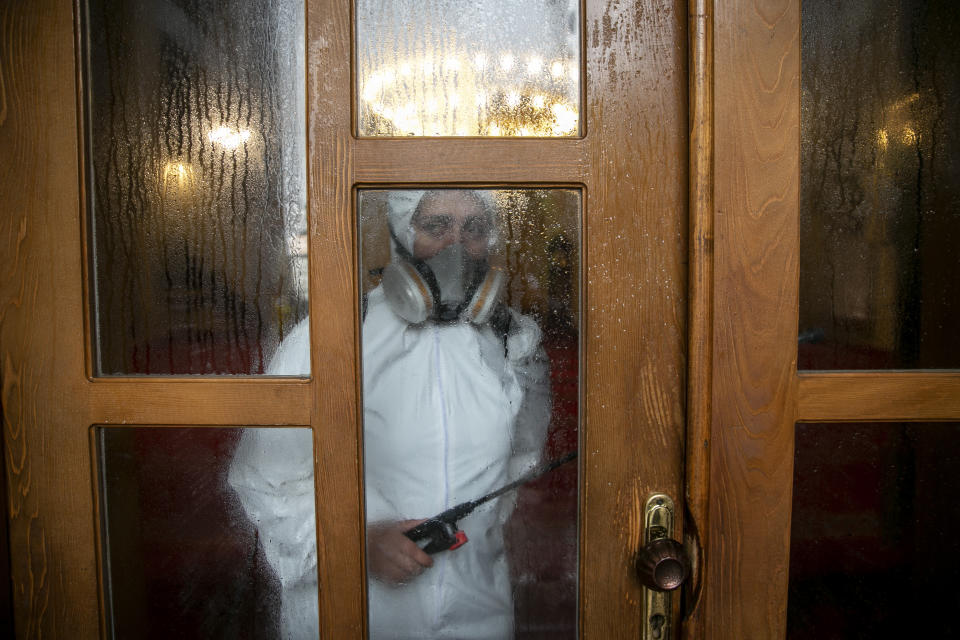What you need to know today about the virus outbreak
Roughly 2.1 million people applied for U.S. unemployment benefits last week, a sign companies are still slashing jobs in the face of a deep recession even as more businesses reopen and rehire some laid-off employees. About 41 million people have applied for aid since the virus outbreak intensified in March.
President Donald Trump has declined to wear masks in public, but a key political ally of the president touted the importance of donning face coverings while touring hospitals. Senate Majority Leader Mitch McConnell, a Kentucky Republican, says “there should no stigma attached to wearing a mask.”
The Boston Marathon has been canceled for the first time in its 124-year history. Organizers said Thursday that they instead will have a “virtual event” in which participants who verify that they ran 26.2 miles on their own will receive their finisher’s medal.
Here are some of AP’s top stories Thursday on the world’s coronavirus pandemic. Follow APNews.com/VirusOutbreak for updates through the day and APNews.com/UnderstandingtheOutbreak for stories explaining some of its complexities.
WHAT’S HAPPENING TODAY:
— More than 18,000 p eople in Nevada filed for unemployment last week, adding to the all-time-high 28.2% statewide unemployment in April. The governor announced casinos can reopen June 4.
— Washington state officials say the state has recovered $300 million paid to criminals who used stolen personal information to file fraudulent unemployment benefit claims.
— But, but … cartoons! The Oklahoma State Department Department of Education approved Saturday classes i n the fall in case of another surge of coronavirus cases.
— More cities and states announced plans to reopen, including bars, nightclubs and amateur and professional sports in Georgia; outdoor dining, indoor shopping and sporting events without spectators as of June 15 in San Francisco; and outdoor dining, small social gatherings and manufacturing and retails businesses in Illinois. Hard-hit Chicago will take it slower than the rest of the state.
- South Korea reported its biggest jump in coronavirus cases in more than 50 days, a setback that could erase some of the hard-won gains that have made it a model for the rest of the world.
— Customs officials say they seized a shipment of unauthorized COVID-19 medication at the Port of Seattle. U.S. Customs and Border Protection said Thursday the seizure involved 360 pills of Lianhua Qingwen arriving from Canada. Other shipments have been previously intercepted in Baltimore and Chicago.
— Great Clips has temporarily closed its salons in Springfield, Missouri, after receiving threatening messages following the news that two hairstylists at one of the locations tested positive for the coronavirus and may have exposed 140 customers.
— The coronavirus has taken a gruesome death toll on Italian priests. With more clergy dying yearly than ordained before the pandemic, priests in formation won’t refill the ranks. Instead, they see a crucial opportunity to re-imagine the role of priests.
— Requiring patients to visit a medical office to get an abortion pill is needlessly risking their health during the COVID-19 pandemic, a group of physicians say in a lawsuit that seeks to suspend the federal rule.
— Reporters from The Associated Press have spoken to more than two dozen athletes from around the globe to get a sense of how concerned they are about resuming competition amid the coronavirus pandemic. Most have questions about testing and potentially bringing the virus home to families.
— Broadcasting was once widely used in Latin America to teach basic math and literacy skills to rural children and adults. Amid the coronavirus lockdown, lessons on radio and TV are making a comeback, especially with the region’s weak internet connectivity.
— Spain’s more than 19,000 nursing home deaths are the most across Europe. It’s led to soul-searching over its elder-care system, particularly public nursing homes operated by private firms that seek to turn profits quickly by cutting staff, expenses and, some say, care to the bone.
___
WHAT YOU NEED TO KNOW:
For most people, the coronavirus causes mild or moderate symptoms, such as fever and cough that clear up in two to three weeks. For some, especially older adults and people with existing health problems, it can cause more severe illness, including pneumonia and death. The vast majority of people recover.
Here are the symptoms of the virus compared with the common flu.
One of the best ways to prevent spread of the virus is washing your hands with soap and water. The U.S. Centers for Disease Control and Prevention recommends first washing with warm or cold water and then lathering soap for 20 seconds to get it on the backs of hands, between fingers and under fingernails before rinsing off.
You should wash your phone, too. Here’s how.
TRACKING THE VIRUS: Drill down and zoom in at the individual county level, and you can access numbers that will show you the situation where you are, and where loved ones or people you’re worried about live.
___
ONE NUMBER:
— 14 million: The U.N. World Food Program is warning that at least 14 million people could go hungry in Latin America as the coronavirus pandemic rages on. The new projections represent a startling increase, more than four times the 3.4 million who experienced severe food insecurity in 2019.
— FUTURE OF DINING: Some restaurant owners are seeking to welcome back in-person dining and adhere to social distancing rules. One Parisian restaurant is trying out enclosing each diner at a table in clear plastic shields suspended from the ceiling.
— ONE GOOD THING: If it hadn’t been for Igor Loparic and his charity, many in the northern Croatian Istria region would've had a harder time coping with the crisis brought on by the coronavirus.
___
Follow AP coverage of the virus outbreak at https://apnews.com/VirusOutbreak and https://apnews.com/UnderstandingtheOutbreak


